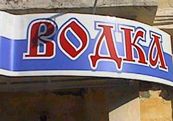The starting place to learn the Russian language on the Internet.
 FR FR |
About us | Home | User agreement | Link to us |
How to Learn Russian
Self-study Principles, Tips and Advice
We receive emails from students - mostly beginners - wishing to have a thorough understanding of the Russian language. Let's start with the basic principles of organizing a self-study process and continue with helpful advice for beginners.
Basic principles of organizing a self-study process
- Allot certain time for learning
Russian language (in the morning or evening) and keep your
schedule. Study every day, even if you have a little time for a
lesson. Make no more than one day off a week.
- Try to include an element of game
and entertainment into your studies. Do not consider them a
necessity or burden.
- The best lesson is a 60-90-minute
lesson with a 5-10-minute break. It is good to make a 15-minute
review of what you learned in 6-9 hour's time after your Russian
lesson spoken language translation beginners.
- Make your place of studying as
comfortable as possible. Pleasant background will put you in the
mood for studying.
- Use and combine all your senses:
sight, hearing, touch, taste, and smell.
- Remember your objective and stick
to it. Pay special attention to those types of speech that you
need mostly (writing, spoken language, etc.).
- Practice your language skills when
the opportunity occurs. Practice every moment you have to spare.
- Try not to accelerate the pace
that you found optimal, as this can worsen your results.
- Praise yourself for achievements.
- Don't miss an opportunity to learn the history, economy, literature, geography, arts, and culture of the country bearing the language that you are learning.
Advice for beginners
- Before you start learning a
foreign language, prepare one text-book, two dictionaries, one
phrase-book, and some simple works of fiction.
- Study the text-book thoroughly.
Miss no one exercise. When making translations, leave space for
corrections. Work at all the mistakes you make.
- Begin to read adopted literature
as soon as possible. Write out new words and phrases, but those
only which you plan to use in the future.
- Collect all your questions about the language and ask native speakers or teachers to answer them. Also ask them to correct your mistakes.
Index of lessons in the series
- How to Learn Russian
- How to Learn Russian: Self-study Process
- How to Learn Russian: Pronunciation
- How to Learn Russian: Grammar
- How to Learn Russian: Listening and Reading
- How to Learn Russian: Speaking and Writing
Got questions?
Ask them in the Russian Questions and Answers — a place for students, teachers and native Russian speakers to discuss Russian grammar, vocabulary, pronunciation, and other aspects of the Russian language.
Copyright 2001-2026 MasterRussian.com | Privacy Policy | Contact Us
 Russian Lessons
Russian Lessons
- Russian alphabet
- Names of letters
- Russian Q&A new
- Pronunciation: Cons.
- Pronunciation: Vowels
- Noun Gender/Number
- Cases of Nouns
- Russian Greetings
- Personal Pronouns
- Learning Russian
- 1000 Common Words
- 500 Russian Verbs
- Top Russian Nouns
- » All lessons
- » Guest lessons
 Browse Topics
Browse Topics
- Start learning Russian
- Forum
- Bookstore
- Dictionaries
- Russian - basic
- Russian - adv
- Pronunciation
- Russian Blog new
- Reading
- Test & quizzes
- Translation
- Verbs
- Verb Conjugations
- Russian numbers
- Russian Tests new
- Vocabulary
- Writing
- Folk music
- Fun stuff
- Leo Tolstoy
- Learner's lore
- Literature
- Personal blogs
- Picture Dictionary new
- Proverbs
- Publications
- Radio & TV
- Russian culture
- Schools in Russia
- Russian Words
- Russian names
- Software
- Russian Words iPhone
Learn Russian every day for free!
Clicks the "Like" button below to get daily updates on Facebook!
Click "Add to circles" to learn Russian on Google+

Search MasterRussian


Meaning: road, route, way
Pronunciation: [dah-ROH-gah]
Learn Russian words! »

FOLLOW US ON TWITTER

MasterRussian on Twitter
Clicks the "Like" button below to get daily updates on Facebook!
Click "Add to circles" to learn Russian on Google+

Search MasterRussian

Custom Search
English » Russian dictionary

WORD OF THE DAY
![]() RSS
|
iGoogle
|
My Yahoo!
RSS
|
iGoogle
|
My Yahoo!
Meaning: road, route, way
Pronunciation: [dah-ROH-gah]
Learn Russian words! »
TODAY'S STREET SIGN

Russian: Водка
English: Vodka
FOLLOW US ON TWITTER

MasterRussian on Twitter


